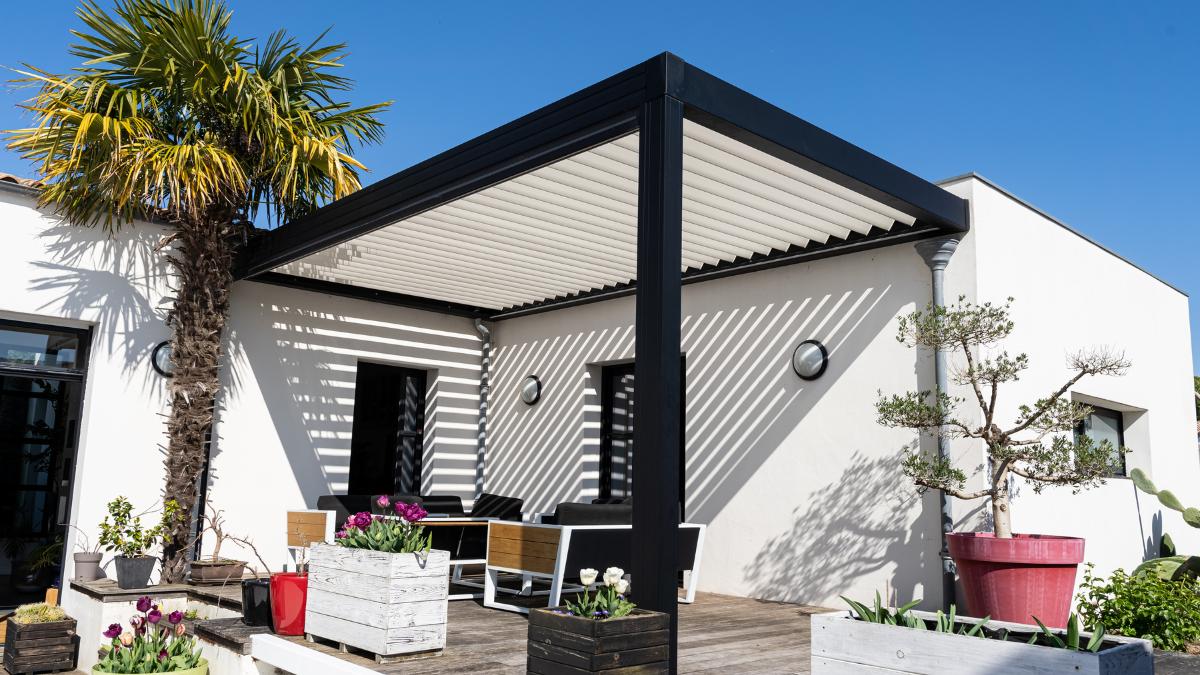Last Updated on December 21, 2023 by Kravelv Spiegel
Pergolas have long been popular additions to people’s homes, and they’ve experienced a significant uptick in recent years. These beautiful and versatile structures allow people to get more enjoyment from their outdoor spaces. They can also add a great deal of value to a home. Numerous styles are available for added design flexibility, and modern technology has brought even more benefits to the mix.
At this point, pergolas are available in several materials. Each one has its own benefits and downsides. Wood, vinyl, and aluminum are among the most popular options. Which one is best, though? In truth, that depends on your needs and expectations. Take a look at some of the advantages and disadvantages of each of these materials to help you make an informed decision.
Aluminum Pergolas
In the past, aluminum pergolas were among the least popular. Their styles were limited, and they offered less durability than certain other materials. All that has changed now, thanks to companies like The Luxury Pergola. They’ve taken aluminum pergolas to entirely new heights, offering high-quality kits that can withstand time and the elements. They also offer a vast range of styles to choose from, so homeowners can easily find one that suits them.
Quality aluminum pergolas offer excellent durability. They’re resistant to rust, insect damage, and other issues. They require little maintenance as well. When they’re made with commercial-grade aluminum, they’re strong enough to withstand high winds and constant use. Though these pergolas may be a bit more costly than their flimsier counterparts, they’re well worth the investment.
Wood Pergolas
Wood is a classic material for pergolas. It offers natural beauty and intrinsic charm. Several types of wood can be used in their construction, including redwood, oak, cedar, and Douglas fir. Wood is a highly customizable option. It can be painted to alter its appearance and meld with the color scheme of a house. On the other hand, it can be stained for added appeal without completely hiding its natural characteristics.
That being said, wood requires a great deal of maintenance. It needs to be sealed or refinished repeatedly. Otherwise, it’s highly susceptible to moisture, decay, and insect damage. Additionally, wood pergolas may warp or crack if they’re not properly treated. Ongoing maintenance and repair needs make them a less appealing choice for many people.
Vinyl Pergolas
Vinyl has been on the market for quite some time, but it’s a relatively new material when compared to aluminum and wood. Pergolas made of vinyl require virtually no maintenance other than occasional cleanings. They don’t have to be painted, stained, or sealed. Since vinyl is a form of plastic, it’s resistant to rot, pests, fading, and other hazards. It lasts a long time, and vinyl pergolas are fairly easy to assemble.
On the downside, vinyl pergolas tend to come with limited customization options. Though they’re available in several colors and styles, they’re not quite as versatile as other options. They don’t always offer the same charm and warmth as wood, and they’re not as durable as commercial-grade aluminum versions. From another angle, they can be less expensive than other types of pergolas.
Choosing Your Pergola
Choosing the right pergola for your property depends on several factors, including your budget and your expectations. Wood, vinyl, and aluminum pergolas offer their own distinct sets of benefits. Wood is a classic choice, but it requires extensive maintenance. Vinyl is often less expensive, but it lacks some of the aesthetic appeal of other materials. High-quality aluminum pergolas are durable and require little maintenance, making them a great choice for many homeowners.

